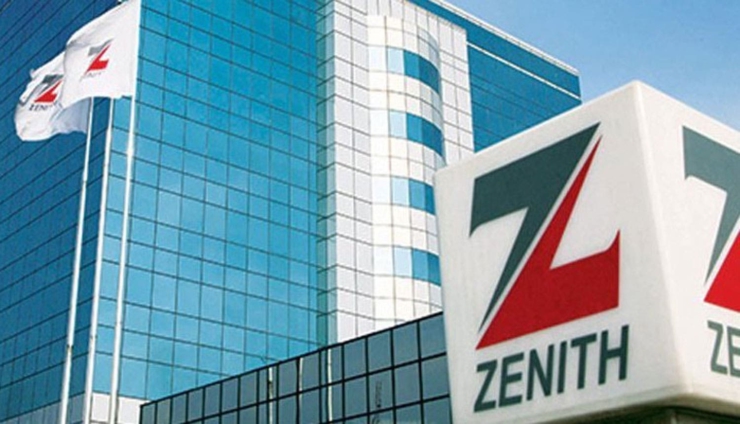Fitch Ratings has affirmed Zenith Bank Plc's Long-Term Issuer Default Rating (IDR) at 'B-' with a Stable Outlook.
It also affirmed the bank's National Long-Term Rating at 'AA-' and assigned a Stable Outlook.
According to Fitch, Zenith Bank's National Long-Term Rating is one of the highest among Nigerian banks, reflecting its strong franchise and financial profile.
It said the IDRs are driven by its standalone creditworthiness, as expressed by its 'b-' Viability Rating (VR). The VR is constrained by Nigeria's Long-Term IDRs of 'B-' due to the bank's high sovereign exposure relative to capital and the concentration of its operations in Nigeria.
Strong franchise
Furthermore, Fitch, said Zenith Bank is Nigeria's second-largest banking group, representing 13.5% of domestic banking-system assets at end-2022.
The bank, it explained, had a strong corporate-banking franchise and a retail-focused strategy that leverages its digital channel, adding, revenue diversification is strong, with non-interest income representing 50% of operating income in 2022.
High sovereign exposure
Again, it said the single-borrower credit concentration of the bank is moderate, with the 20-largest customer loans representing 26% of gross loans and 79% of Fitch Core Capital (FCC) at end-2022.
Oil and gas exposure (23% of gross loans at end-2022) is material but lower than other domestic systemically important banks'.
It however mentioned that strong loan growth (on average 20% annually during 2019-2022) may lead to asset-quality weakening as the loan book seasons.
Strong Profitability
It stated that Zenith Bank delivered strong profitability, as indicated by operating returns on risk-weighted assets (RWAs) averaging 5.1% over the past four years.
Strong profitability was supported by a wide net interest margin (NIM), strong non-interest income and moderate loan impairment charges.
But profitability declined in 2022 due to a weaker NIM and losses stemming from Ghana's default.
Strong capitalization
Fitch said Zenith Bank's regulatory capital ratios have comfortable buffers above impending Basel III requirements.
It added that the bank’s capitalization would be resilient to a material naira devaluation.
Challenging operating environment
It noted that bankscontinue to contend with US dollar shortages and the Central Bank of Nigeria's (CBN) highly burdensome cash reserve requirement.
It therefore expects reform progress under the new administration, including elimination of fuel subsidies and gradual liberalization of the naira.
However, there is a risk of a sharp depreciation due to the large disparity between the official and parallel exchange rates.
Latest Stories
-
Elmina Sharks to play behind closed doors for rest of season, fined GHS 20,000 for misconduct
4 minutes -
Labour Minister pushes for stronger HR policies and job creation
5 minutes -
Jordan Ayew names Christian Atsu as the best player he has ever played with
12 minutes -
Elmina Sharks’ Asamoah banned for a year, five officials suspended for rest of season
17 minutes -
GPL: Hearts of Oak fined GHS 20,000 for allowing fans into ‘security zone’
31 minutes -
GFA bans Elmina Sharks President Papa Kwesi Ndoum for three months
37 minutes -
Today’s Front pages: Wednesday, March 26, 2025
51 minutes -
Kenyan police officer goes missing in Haiti gang ambush
53 minutes -
One collapses, properties destroyed in Tuesday’s rainstorm in Damongo
1 hour -
Sudan army accused of killing hundreds in airstrike on Darfur market
2 hours -
Trump signs order aimed at overhauling US elections
2 hours -
Top cocoa producer Ivory Coast to slash exports from smaller upcoming crop, sources say
3 hours -
2026 World Cup qualifying: Brazil humiliated 4-1 by bitter rivals Argentina
3 hours -
Trump signs order aimed at overhauling US elections
4 hours -
Sussex university fined £585k in free speech row
4 hours

